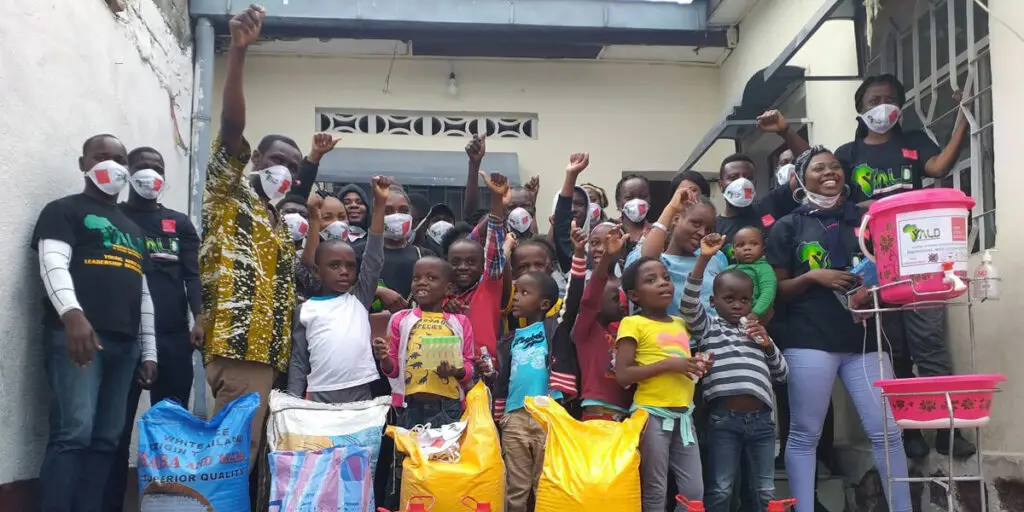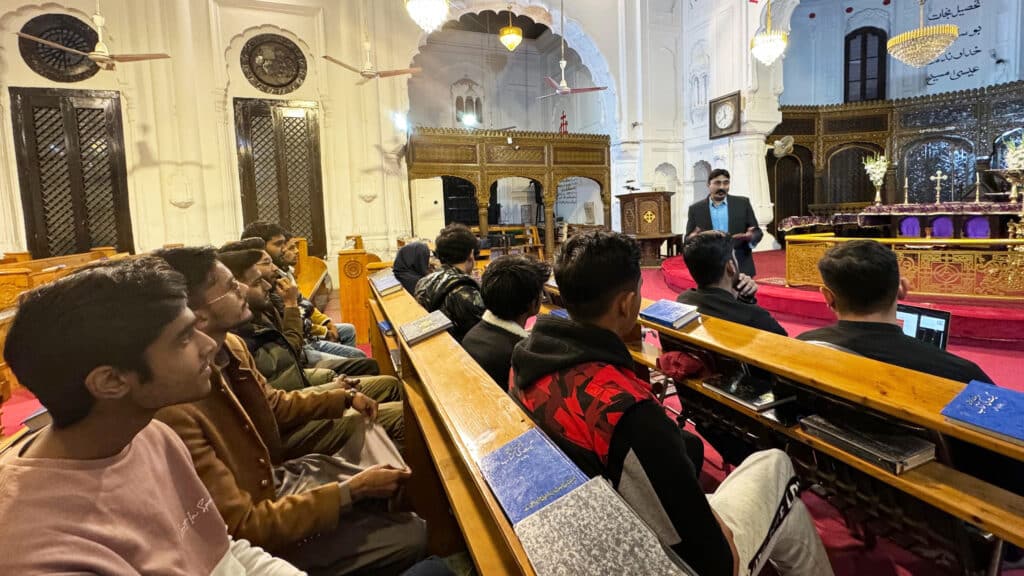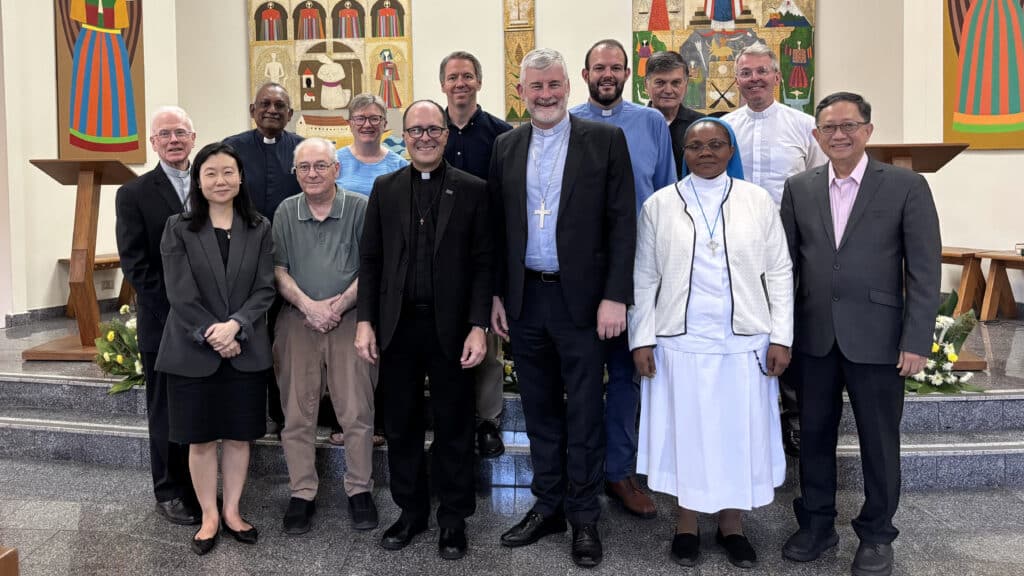As Chanmony Ek goes about her missionary work in South Africa, more than 6,000 miles from her home in Cambodia, the threat of the coronavirus leads to dire thoughts.
“What if I get infected by COVID-19 and my situation got worse? I might die here, plus my family is not going to see me a last time,” Ek wrote in an email to UM News about the stress of the pandemic.
The United Methodist Board of Global Ministries has 350 missionaries serving in 70 different nations, said the Rev. Judy Chung, executive director of missionary service. The highest numbers are located, in order, in Africa, North America and Asia.
“We did offer to evacuate our missionaries back in March when we didn’t know exactly what the reality would be,” Chung told UM News, adding that just a few evacuated. She said most wanted to “stay in place to be engaged in mission.”
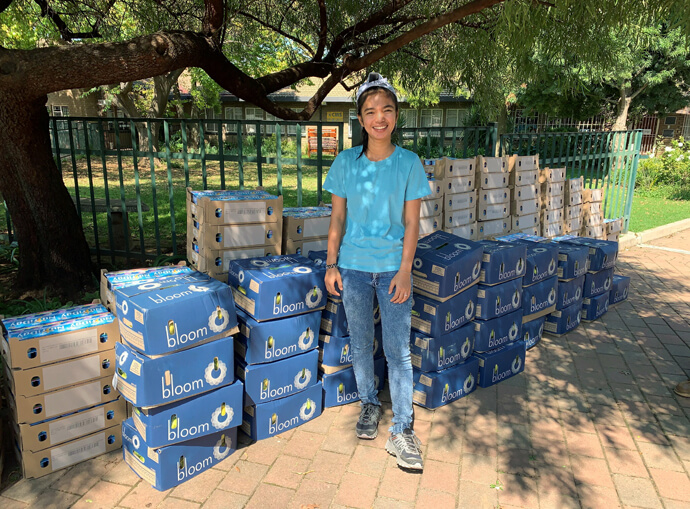
PHOTO: COURTESY OF CHANMONY EK
Ek was in South Africa four months when the COVID-19 crisis began. She worked in the Gauteng province at the Northfield Methodist Church in Benoni and the John Wesley Community Centre. Her duties included working with a support group for family members and friends of addicts, a gardening project, teaching English to preschoolers, working at a charity shop, teaching children’s Sunday school and working with a food ministry.
“Suddenly COVID-19 comes and the full lockdown started,” Ek said. “The John Wesley Community Centre and Northfield Methodist Church closed.”
But the food ministry became even more important, she said. The government and Northfield now are working together to feed 500 homeless people staying in shelters three times daily.
“It was a good chance for me to learn different things,” she said. “Especially the way that the church gets involved and helps the community.”
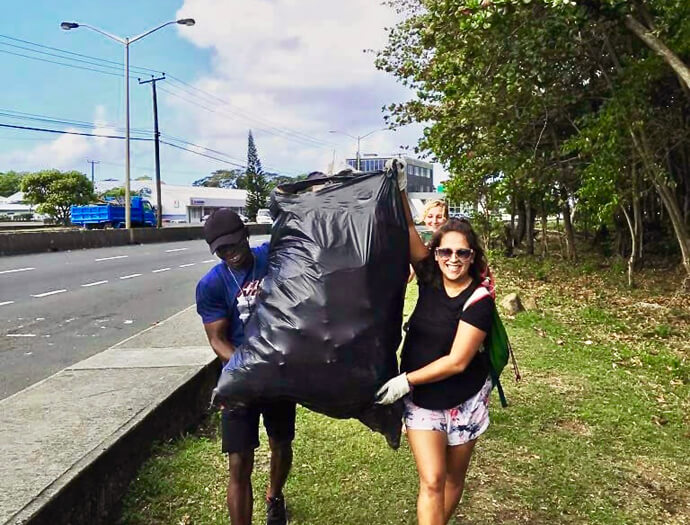
PHOTO: COURTESY OF MOININA MINAH
Moinina Minah, a missionary from Sierra Leone serving in St. Lucia in the Caribbean, had a similar experience.
“Because of the second wave of COVID-19 in St. Lucia, schools are closed and people are not allowed to gather in groups,” Minah said. He said restrictions to contain the virus ended the character development sessions, after school programs and community worship that he did.
Now, he uses Zoom to keep in touch with youth and records devotions for schools to share on social media pages.
“Because of this new approach, I have been able to minister to youth and children from four congregations, including parents,” Minah said. He’s also been helping with the church livestream worship service and has learned video editing, graphic design and how to broadcast worship services online.
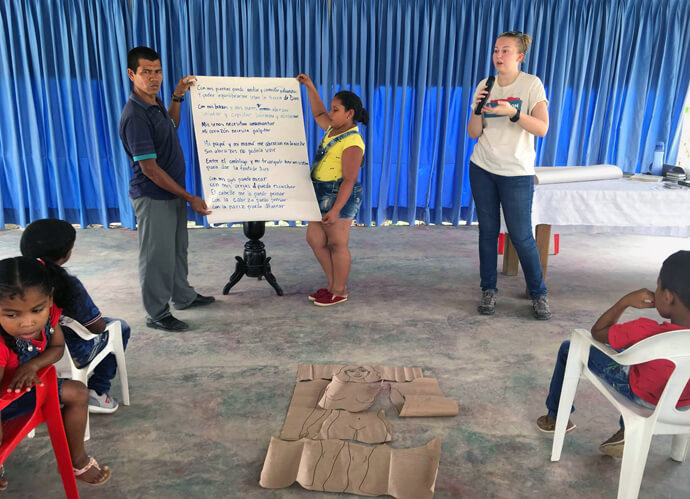
PHOTO: COURTESY OF HANNAH REASONER
Hannah Reasoner, who is working in communications in Colombia, had to adjust how she helps produce radio shows for religious and social organizations.
“Combine the stress of starting a new job, moving to a different country and living in a pandemic all into one tightly-wound bundle, (and) that’s pretty much how this year has been,” she said. “Even so, I know I’ve had it pretty easy. I am able to continue working and doing work I am passionate about and my family and friends and I are healthy.”
She was used to working collaboratively in an office with a studio.
“Now, it is a very different experience,” Reasoner said. “I walk the same route to the office but with a mask on and through empty streets. I get to the office to disinfect and wash my hands and awkwardly greet people from a distance.”
Sometimes, she stays in her apartment, which has a stronger internet connection. Adjustments allow her to produce the programs without having to be in the studio.
“The sound quality isn’t always as good, but it has allowed us to continue the work and listening hours have also gone up as people stuck at home tune in more frequently,” Reasoner said.
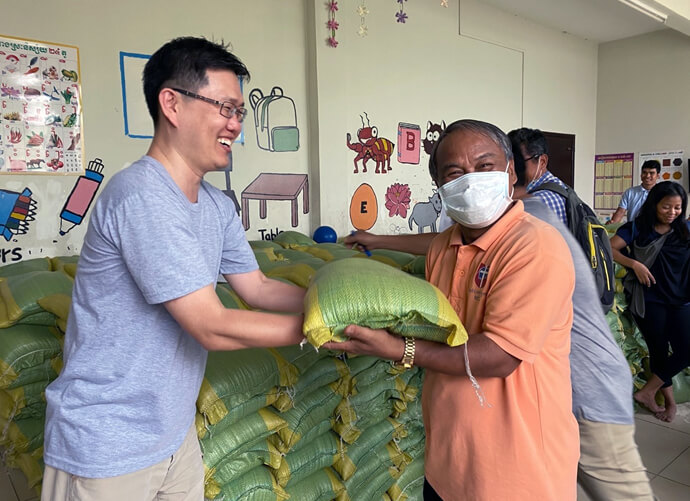
PHOTO: COURTESY OF THE REV. ANDREW LEE
The Rev. Andrew Lee, a native South Korean who previously pastored a church in Hawaii, has witnessed hardships related to the coronavirus while serving as a missionary in Cambodia.
“The Cambodia government suspended the issuing of visas for tourists the whole year, which affected the local economy of Cambodia immensely,” Lee said. “Personally, I have seen an increasing fear and anxiety among Cambodians, and indeed, the poor became poorer, especially the widows and children and other marginalized ones from the society.”
The Asia regional office of Global Ministries created a relief fund to support Cambodians hurting economically, Lee said. COVID-19 prevention education also was provided and about 1,000 needy families identified for extra help included homeless people, street children and widows living in poverty.
Those people received 10-kilogram sack of rice, as well as soaps, reusable masks and sanitizer.
“We also have reached out to women factory workers because many garment factories in Cambodia have shut down and the workers were on unpaid leave since March,” Lee said.
The pandemic in Congo has changed the job of Innocent Afful, a Ghanaian working with orphans and vulnerable children.
“During the pandemic period, everything is down and hunger seems to be the most dangerous situation to our various orphanage homes,” Afful said. “That is the reason we have to be self-reliant and cultivate our own crops to feed the various homes and the vulnerable children, rather than seeking much from the society and other donors.”
A handful of missionaries, including Minah, were unable to return home on schedule, Chung said.
“We had five young adults who are in a two-year fellow’s program and they were scheduled to go home in May or June of (2020),” Chung said. “Most of those flights were either canceled or postponed.
“Those who had to stay longer, we were able to work things out with the partners so that they can still continue to engage in some work, although there’s been limitations on how much they can do sometimes due to local lockdowns and things like that.”
One missionary had his flight changed 18 times before finally making it home, she said.
Lee and his family had planned to leave Cambodia during the summer to visit relatives. His wife and daughters were able to make the flight, but Lee opted to stay behind.
“I decided to stay in Cambodia because of the COVID-19 relief project,” Lee said. “I realized that people needed me more than ever before. … I’m thankful that God granted me this opportunity to stay with friends and become much closer to them during this challenging time of our lives.”
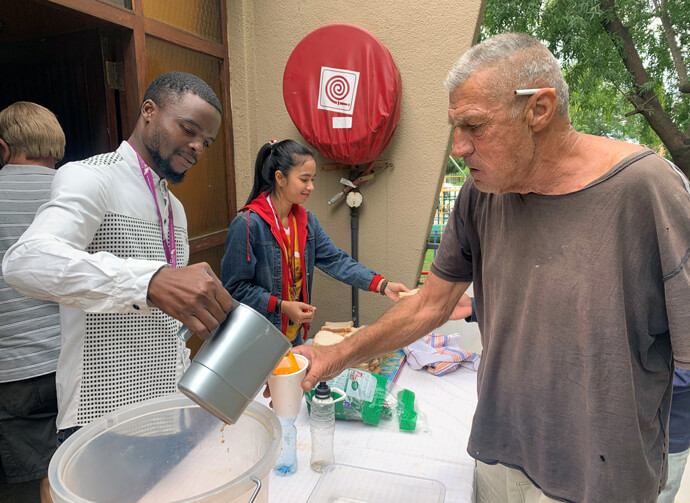
PHOTO: COURTESY OF CHANMONY EK
The 55 prospective missionaries in the 2020 class of International Global Mission Fellows stayed home because of travel restrictions. Recruiting for the 2021 class has started, but a smaller number will be chosen.
“We’re hopeful that we can move forward,” Chung said. “The (new recruits) may or may not get to their placements. If we are in a place where we are able to send missionaries, then we are recruiting for that.”
COVID-19 has caused some prospective missionaries “to make a decision that they are not quite ready to be outside of their home community in the midst of what is happening,” Chung said.
“But there are others who are sensing the need for missions in times like this. There’s a greater need.”
Ek plans to return to her native Cambodia and work at a rural community school there, as well as help grow a church.
“The school needs good resources to educate the kids, especially in the English language,” she said.
Her time in South Africa was not what she expected. She hadn’t anticipated being worried about dying far away from home.
“Many emotions came up in my mind: scary, sadness, homesick,” Ek said.
“One thing that God speaks to me is He is the one who sets my death time. … I realized that during this difficult time, it might be a good time for me to give my faith to God and the community.”
Patterson is a UM News reporter in Nashville, Tennessee.
